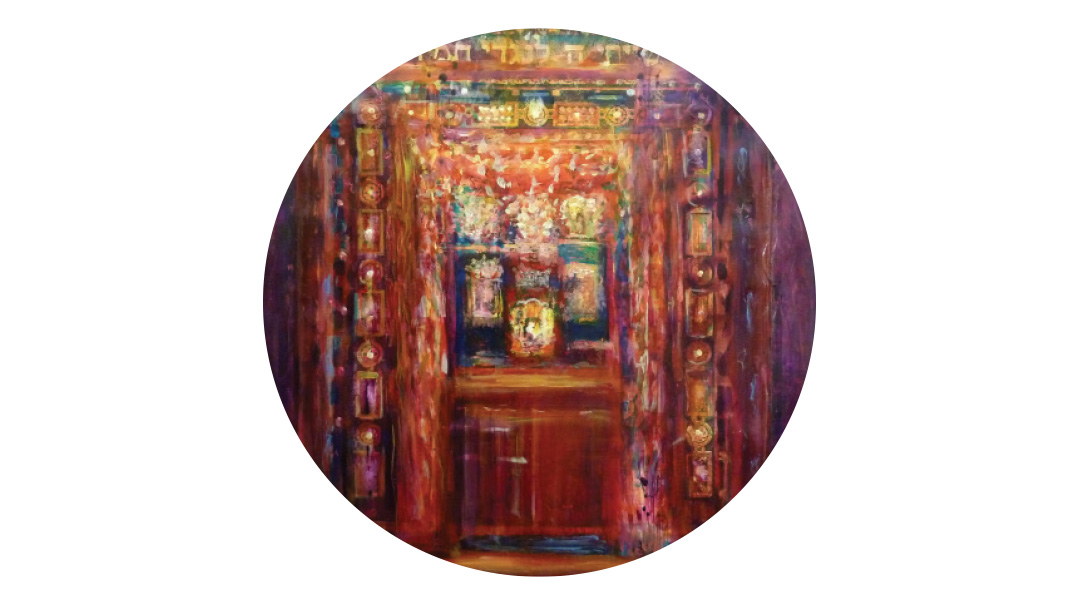Sincere Submersion


Total immersion in Hashem’s mikveh ,Sincere Submersion ,Total immersion in Hashem’s mikveh
A s Yom Kippur approaches we experience a mix of feelings swinging from trepidation and dread to elation. We move from the royal and pensive contemplation of Rosh Hashanah to the awe-inspiring Aseres Yemei Teshuvah that culminate with Yom Kippur. The day tests our physical stamina as we fast and emotionally humbles us as we repent. Its conclusion is the stunning embrace of Hashem as our King and our triumphant entrance into Chag HaSuccos.
Cleansed by Our Father in Heaven
Rav Moshe Avigdor Amiel in his sefer Hegyonos El Ami compares this process to the ritual of mikveh. He quotes the famous mishnah (Yoma 8:9):
“Said Rabi Akiva: ‘How fortunate is Yisrael. Before Whom are you cleansed and Who cleanses you? Your Father in Heaven… As it says: The mikveh of Yisrael is Hashem; just like a mikveh cleanses the impure so Hashem cleanses Yisrael.’ ”
The process of tevilah in a mikveh requires a person to be completely submerged in its waters. The water must completely envelop him flowing beneath his feet and over his head. He could spend an entire day standing next to the mikveh looking at it and it wouldn’t alter his status by a hair’s breadth. Additionally any foreign object that acts as a barrier between the body and the water would invalidate the tevilah and the mikveh would not render him pure.
Hashem’s mikveh works in a similar way. We need to be in a place where we can feel the tangible embrace of Hashem. This connection surpasses the awareness engendered by “Shivisi Hashem l’negdi tamid — I place Hashem before me at all times ” which refers to a one-dimensional awareness. This awareness is more limited: We can ignore what’s in front of us and focus on what surrounds us from the other sides. But this leaves us submerged in tumah vulnerable to stumbling in sin.
Our only salvation is submerging in the Mikveh Yisrael Hashem where we are surrounded by His Presence.
As the Selichos state: “The neshamah is Yours and the body is Your creation.” Our neshamah belongs completely to Hashem but our body has been given to us to use or abuse at our own will. We must aim to bring our body into a state of recognizing that it’s also truly His.
Connecting to the Source
We can learn still more about the process of teshuvah from the halachos about creating a mikveh. A mikveh’s waters must be “mayim chayim” natural flowing waters and cannot be “mayim shi’uvim” drawn in any sort of vessel.
Similarly our neshamah can connect only to the Source of its kedushah; it cannot connect to something that has been uprooted from its living source. The teshuvah process is our reconnection to that Source. As Dovid Hamelech explains (Tehillim 36:10–11) “Because with You is the source of life.”
Rav Amiel further cites Hoshea (14:3): “Take these words with you and return to Hashem. Say ‘You shall forgive all iniquity…’ ” This is our teshuvah process our immersion in the live waters of the mikveh of Hashem which is completed by Hashem doing the seemingly impossible — removing the stain of sin from our souls.
The great mashgiach Rav Dovid Kronglass (Sichos Chochmah U’mussar) describes what sin is and what it does to our souls. It is tinuf mamash actual dirt. Yeshayahu (4:4) states “When Hashem will have cleaned the excrement of the daughters of Tzion...” Our sin is not simple dirt it is the nadir of repulsiveness. Living in dirt we can unfortunately become accustomed to the stench and grime that surround us.
Rav Kronglass quotes the sefer Tomer Devorah: “And what is forgiveness? It is the cleansing of the sin… When Hashem is ‘oveir al pesha ’ when He passes over our miscreant deeds He is sending waters to launder the deed. From here we see that one should have shame when he repents because it is the King Himself Who cleans the dirt of one’s ‘clothing.’ ”
Rav Amiel contrasts doing teshuvah with performance of the other mitzvos. If one planned to do a mitzvah but was kept from fulfilling it by circumstances beyond his control the action is still credited to him (Berachos 6:1). It is not so with teshuvah. As previously mentioned one can contemplate dipping in a mikveh from morning until night but until he actually does it he will remain impure. There is no concept of credit without action in teshuvah.
Our teshuvah has to be sincere and it has to be tangible. The process of regret must be completed with our abandoning sin and embracing the enveloping waters of the Mikveh Hashem.
People will travel great distances and spend large sums of money to bathe in and drink “pure spring water.” Nothing compares to a drink directly from that spring — and indeed the term “spring water” is strictly regulated in the bottled-water industry (unlike its unregulated neighbors on the grocery store shelf like glacier or mountain water). Throughout history man has traveled far to drink and bathe in water that is fresh clean and pure.
All Who Are Thirsty
Our obsession with pure drinking water parallels a spiritual reality. We must yearn and strive to connect to the Source of Life — there is nothing that can equal it.
The days of Elul and the Aseres Yemei Teshuvah are the days when we are enjoined to “Seek Hashem while He is found; call Him while He is close” (Yeshayahu 55:6). We are sitting on the banks of the spring water connecting us with our Source; it’s up to us to take advantage of our proximity to submerge ourselves in the waters. These living waters also offer the gift of clarity — if we are willing to get rid of all distractions.
I remember being at the levayah of Rav Yaakov Weinberg ztz”l in Baltimore during the summer of 1999. I hear one of his messages and it’s resonated in my life and my teachings ever since: The navi Yeshayahu instructs “All who are thirsty go to the water” (55:1). The Torah is compared to water the most basic necessity for sustaining life. Yet while there are dozens of drinks we enjoy no one drinks plain water without being thirsty. So too no one achieves growth in Torah or Yiddishkeit unless they thirst for it unless they pine for it and work for it.
“As a stag cries longingly for rivulets of water so does my soul cry longingly to You. My soul thirsts for G-d for the living G-d…” (Tehillim 42:2–3)
That thirst is what we need to daven for and strive for to succeed in our teshuvah. Rabbi Yehudah Leib Chasman (Ohr Yahel Maarchos Hateshuvah) directs us to a Rabbeinu Yonah in Shaarei Teshuvah that describes the nature of the wicked person:
“During a wicked person’s life all of his desires are for the needs of the body alone.” His desires therefore keep him from serving his Creator and he becomes disconnected from his Source. When his life ends and he is buried his bond with the earth and the physicality that he so desired is only intensified.
But we must work to ensure that our desires lead us to a greater closeness to Hashem. The teshuvah process reignites our passion encouraging us to delve into the sea of Living Waters. We ask Hashem to help us have clarity to see our naked soul and realize that we must dress it in clothing suitable for the neshamah it houses.
Rav Kronglass closes his essay with the message that explains the transition we all traverse at the close of the Aseres Yemei Teshuvah.
It seems incongruous he notes to precede Yom Kippur with an elaborate seudah. But in actuality the Erev Yom Kippur process is part of the day itself. We recite special tefillos including Vidui on Erev Yom Kippur and are instructed to “demonstrate happiness that the time has come to be forgiven” (Rabbeinu Yonah Shaarei Teshuvah 6).
“How fortunate is Israel” — we get this chance every year! We should strive for a full teshuvah that will accompany our every step in the year ahead. May Hashem purify all of us in His pristine mikveh allowing us to emerge refreshed and ready to great Mashiach Tzidkeinu bimheirah!
Originally featured in Family First Issue 561. Rebbetzin Aviva Feiner is the rebbetzin of Congregation Kneseth Israel (The White Shul) and menaheles of Machon Basya Rachel Seminary both in Far Rockaway.
Oops! We could not locate your form.







